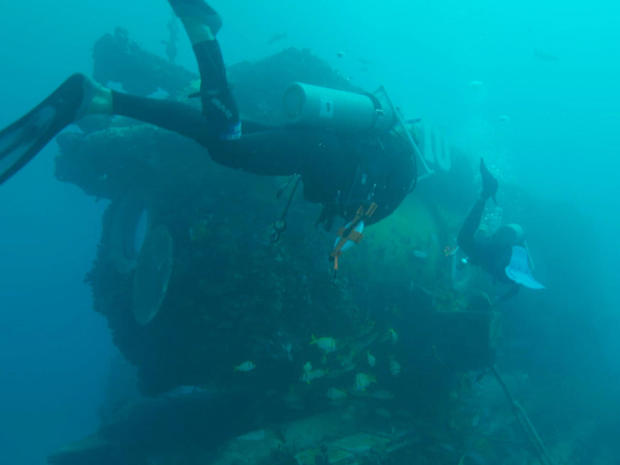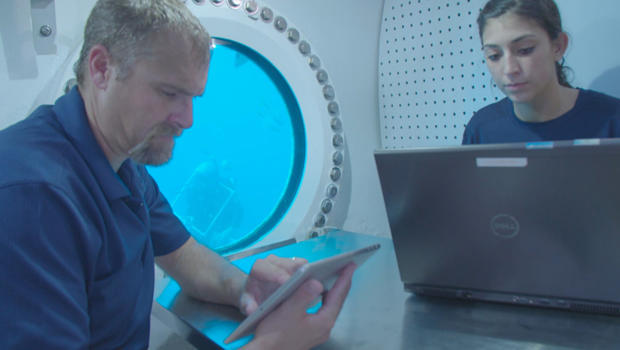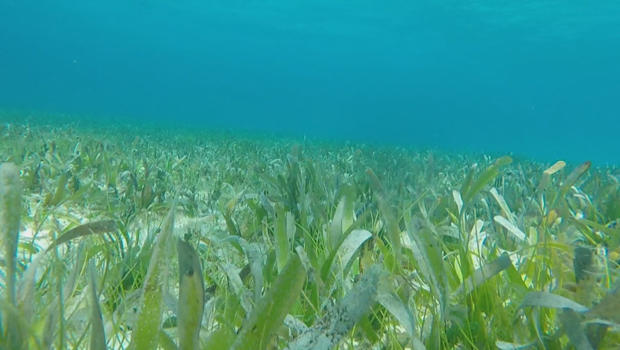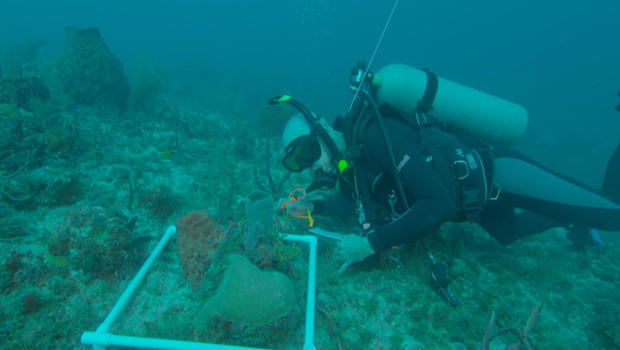Studying Earth's climate by living under the sea
In our "Eye on Earth" series, we're looking ahead to a landmark United Nations Climate Action Summit next week. CBS News is the only broadcast network participating in the "Covering Climate Now" Project, in partnership with 250 other news outlets. We're highlighting the health of our planet with our own original reporting.
About five miles off Islamorada, in the Florida Keys, is an underwater lab called the Aquarius Reef Base. The only way to get to it is to scuba dive.
The lab sits 50 feet down on the ocean floor and has only recently come back into service after being knocked out of commission by Hurricane Irma two years ago. The storm damaged the surface unit that provides power and pumps air down to the lab at enough pressure to keep the air in and the water out.
Inside, you swim into what they call the wet porch, for good reason.
It's got all the comforts of home (if you're a fish). Not many people get to take an underwater shower.
Marine scientist Jim Fourqurean spends a lot of time down here as part of the Florida International University team that runs the place. Once you're in it, it feels like an underwater RV, with a difference.
"A lot of attention is paid to make sure that oxygen concentrations are correct," Fourqurean said, "and the CO2 is at the right level, and the temperature and humidity."
"You can forget you're 50-odd feet below the surface down here," said correspondent Mark Phillips.
"You really can!"
If you don't look out the window. The point of being down here is that actually living on the sea floor means scientists can do more than just the relatively short dives that are possible from the surface. Once acclimatized to the pressure, they can stay out for hours — and down here for days.
They almost become sea creatures themselves, says marine ecologist Mike Heithaus.
"You really can be the ocean, so you get a sense of change that you don't with just instruments in the water or just little tiny dives," Heithaus said. "So, you need these observatories like Aquarius to keep an eye on what the reefs are doing and figure out the solutions."
Here's one of the major problems the Aquarius scientists are working on: Hurricane Irma also did major damage to the sea grass beds that grow just off the coast. Why does that matter? Think greenhouse gases and global warming.
"There's as much CO2 stored in sea grass meadows as there is in tropical forests on an acre-by-acre basis," Fourquerean said.
"So, an acre of the Amazon rainforest compared to an acre of sea grass ...?" asked Phillips.
"They have about the same amount of carbon stored."
"Which is a good thing."
"It is a good thing – and we're losing sea grasses faster than we're losing coral reefs," said Fourquerean.
Not only that, because turtles eat sea grass, and there are fewer sharks around to eat turtles, the grass never gets a chance to grow back.
"Turtles are watching what's going on around them, and if their buddy gets eaten, they're not going to do what their buddy was doing," Fourquerean said.
"So, just having sharks in the area, is what you're saying, controls the numbers of turtles that are eating the sea grass?"
"Absolutely."
It's the kind of observation that takes the time only a place like Aquarius can provide.
More and more, the world's oceans and what they mean for greenhouse gases (and so, for global warming) is becoming a crucial part of climate science, and that study is made a whole lot easier, if you can live down here.







